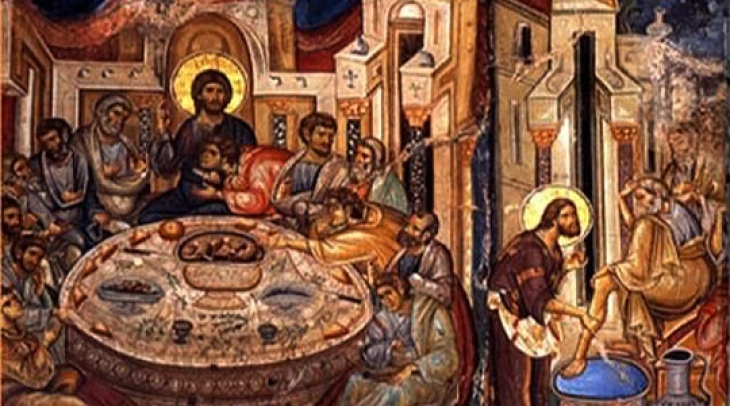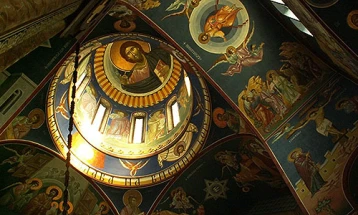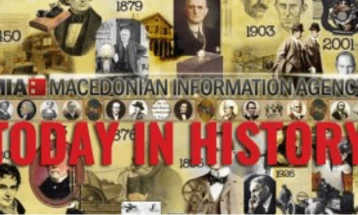Religious calendars
- Macedonian Orthodox Church Calendar; St. Amphilochius, Bishop of Iconium

6 December 2024 (MIA)
Macedonian Orthodox Church Calendar
St. Amphilochius, Bishop of Iconium
A fellow-countryman and friend of St Basil the Great and other great saints of the fourth century, Amphilochius early forsook the bustle of the world and withdrew to a cave where, as a solitary, he lived in asceticism for forty years. The episcopal throne in Iconium then fell empty, and Amphilochius was chosen in a wonderful way and consecrated as Bishop of Iconium. He was a marvelous shepherd and a great defender of the purity of the Orthodox faith, and took part in the Second Ecumenical Council in 381. He fought zealously against Macedonius, and against the Arians and the Eunomians. He personally begged Theodosius the Great to drive the Arians out of every city in the Empire, but the Emperor did not comply with his request. After a few days, Amphilochius came before the Emperor again. When the bishop was taken into the presence-chamber, the Emperor was sitting on his throne with his son Arcadius, whom he had taken as co-Emperor, sitting at his right hand. Entering the room, Amphilochius did reverence to Theodosius, but ignored Arcadius as though he were not there. Infuriated by this, the Emperor Theodosius commanded that Amphilochius be instantly driven from court. The saint then said to the Emperor: ‘Do you see, O Emperor, how you do not tolerate a slight paid to your son? In the same way, God the Father does not tolerate dishonor paid to His Son, turning with loathing from those who blaspheme against Him, and being angered at that accursed Arian heresy.’ Hearing this, the Emperor understood the reason for Amphilochius’s seeming disrespect towards his son, and marveled at his wisdom and daring. Among many other works, Amphilochius wrote several books on the Faith. He entered into rest in 395 in great old age, and went to immortal life.
Catholic calendar
St. Nicholas
St. Nicholas, called “of Bari”, Bishop of Myra (Fourth Century) Dec. 6. Feast day. The great veneration with which this saint has been honored for many ages and the number of altars and churches, which have been everywhere dedicated in his memory, are testimonials to his holiness and of the glory, which he enjoys with God. He is said to have been born at Patara in Lycia, a province of Asia Minor. Myra, the capital, not far from the sea, was an episcopal see, and this church falling vacant, the holy Nicholas was chosen bishop, and in that station became famous by his extraordinary piety and zeal and many astonishing miracles. The Greek histories of his life agree that he suffered imprisonment of the faith and made a glorious confession in the latter part of the persecution raised by Dioletian, and that he was present at the Council of Nicaea and there condemned Arianism. The silence of other authors makes many justly suspect these circumstances. He died at Myra, and was buried in his cathedral.







